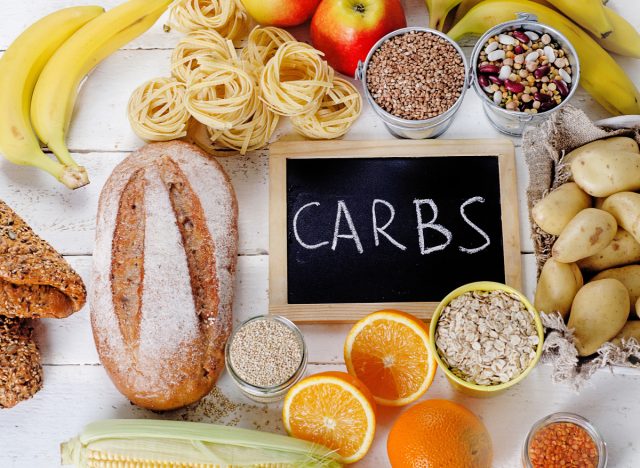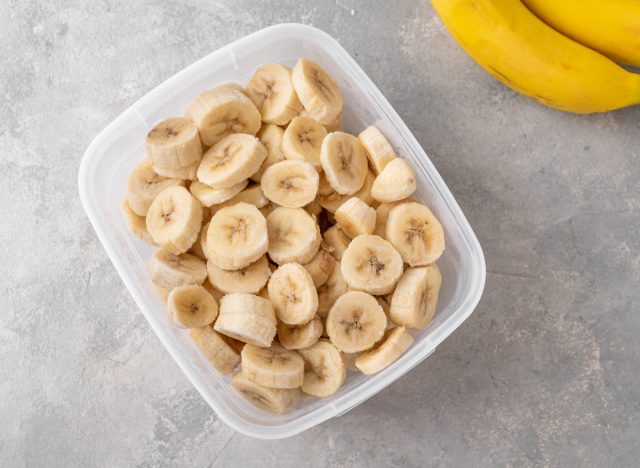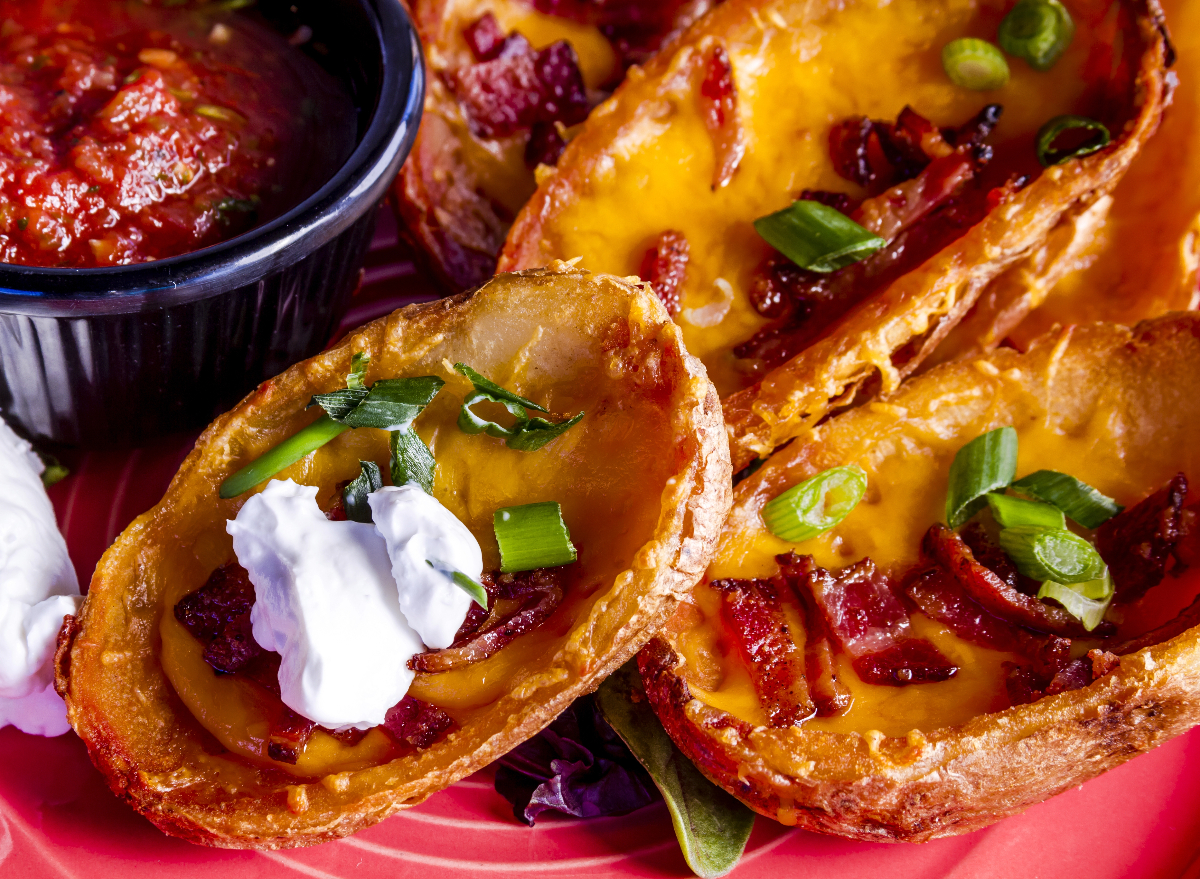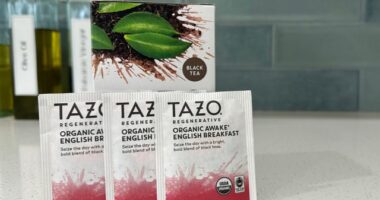We’ve all had those days when hitting the gym feels like a monumental task. Whether it’s the grind of a long workday, the demands of family life, or just the general ups and downs of daily living, finding the energy to work out can be daunting. But here’s the good news: Unlocking the door to an effective and invigorating workout might be simpler than you think. We found out a trainer’s #1 energy source for workouts, so listen up.
Eat This, Not That! spoke with Gianna Masi, CPT, RDN, a certified personal trainer and registered dietitian with Barbend, who unveils her secret weapon that fuels her energy for productive workouts. No, it’s not a trendy supplement, magic pill, or new fitness gadget. It’s the food you fuel your body with before crushing a workout. And the best part? Knowing what it is and consuming it properly can transform your fitness journey by helping you have a killer workout every time.
“What to eat for a pre-workout meal is a common question with various answers on the internet,” states Masi. “With sports nutrition science on our side, you should always include some form of faster-digesting carbohydrates as a pre-workout snack.”
Read on if you’re ready to discover this trainer’s #1 energy source for workouts and how to make it work for you. And when you’re done, check out The Best 30-Day Standing Workout To Lose Weight & Get Fit.


Before hitting the gym or starting any workout, fuel your body with a well-balanced meal with complex carbohydrates, lean protein, and healthy fats. Being prepared sets you up for a high-quality, energetic workout.
“Preparing for a workout or exercise provides tools in your toolbox to have enough energy to get through a workout and perform optimally,” says Masi. “Even if someone is training for weight loss or body composition, having more energy output and intensity can help their training outcomes and performance in the gym. Carbs help us do that.”


Carbohydrates are your workout’s best friend. Multiple studies have shown that carbs are your body’s primary source of energy, especially during exercise. Opt for whole grains like brown rice or oats for sustained energy release throughout your session.
“While all macronutrients are important, carbohydrates are crucial for activity,” says Masi. “Carbs provide the quickest energy source for our bodies and brains. Protein and fats also provide energy by way of calories, but their time to digest and utilize is much slower than carbs, which is why carbs are the priority before a workout.”
READ RELATED: Ace Davis Height, Weight, Age, Body Statistics


If you need a quick energy boost, like during a longer run, consider fast-digesting carbs like a banana or an energy gel. These can provide rapid fuel for intense workouts, ensuring you have the stamina to power through.
“Not only are fast-digesting carbs delivering energy much faster, they also won’t cause as much gastrointestinal upset or bloating as when someone has a high-fiber or high-fat meal before a workout,” explains Masi. “For example, if someone wants rice, beans, and egg whites as a pre-workout meal, the performance recommendation is to have rice and egg whites as the pre-workout meal and skip the beans. While beans are a great source of carbohydrates, they’re also high in fiber, which we want to save for away from workout times.”


Whether on the treadmill, lifting weights, or practicing yoga, maintaining energy levels is crucial. Keep some easy-to-digest carbs nearby, like dried fruit or a granola bar, to stay fueled and focused.
“A great example of fast-digesting carbs in action is if you’ve ever been to a sporting event and seen someone get low blood sugar. The athletic trainers or performance dietitians will provide a fast-digesting sugar like straight glucose, apple juice, apple sauce, or another type of fast-digesting carb to get their blood sugar back up,” says Masi.


Timing is everything when it comes to pre-workout nutrition. Consider eating a well-balanced meal containing carbs, protein, and fats two to three hours before exercising.
“To make the most of the quick energy, aim to consume fast-digesting carbs 30 to 45 minutes before working out or running,” says Masi. “This will provide energy and give you that boost you need. Typically, 30 grams of carbs for a 30 to 60-minute training session will be enough for some, and others will want to have close to 60 grams of carbs per half hour to hour of work. If your session lasts longer than two hours, it can be helpful to have another serving of carbs during your session to keep energy levels high.”











